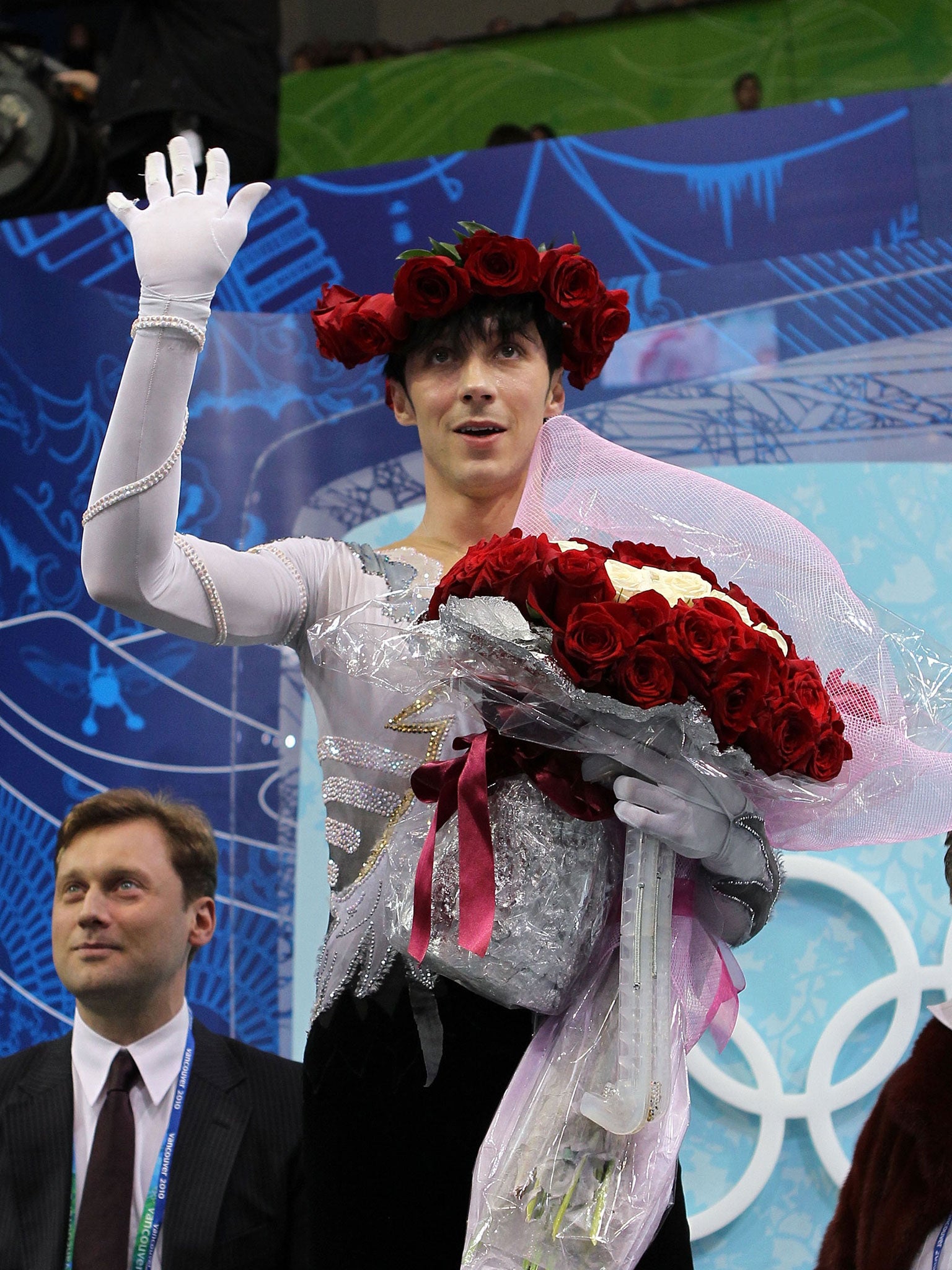Inside Lines: For Sochi the future is gay, whether Vladimir Putin likes it or not
One certainty is there will be no boycott neither will the games be shifted

Back in 1976 when I edited the magazine Sportsworld, then the official publication of the British Olympic Association, I received a telephone call from a Melbourne radio station in the middle of the night following the British figure skater John Curry’s breathtakingly artistic gold medal-winning performance in the Innsbruck Winter games.
“Hi,” said an Aussie voice. “We’ve all been watching your guy John Curry win the Olympics. Isn’t he something? Understand you know him quite well.” I concurred that indeed I did.
“Great. Look, mate, would you mind telling us a bit more about him – we’re all keen to know. Can we go live with an interview now?” “No problem,” I replied.
“OK... We’ve got Alan Hubbard, editor of Sportsworld magazine live from London, who knows this Pommie skater John Curry we’re all talking about... Tell me Alan, is he a poofter?”
I recall I quickly mumbled something about his sexual orientation being his own business. “Well,” came the response, “he sure looks a poofter from here!”
Thankfully, things have moved on since then – even in Australia. But not, apparently, in Russia and, significantly, certain other discriminatory outposts, including Qatar, which follows Russia as World Cup hosts in 2022, and where being gay, as the late Curry eventually revealed he was, is still tantamount to being a pariah.
Actually, the thought occurs that criminalising displays of affection between gay people may be rather difficult to enforce in a state like Qatar, where, as I have witnessed there and in Saudi Arabia, Dubai and Abu Dhabi, men can regularly be seen holding hands (though never with women). It is an old Arab custom.
We have heard much recently during the World Athletics Championships in Moscow, thanks to Russia’s mouthy Sports Minister, Vitaly Mutko, about the new anti-gay legislation which now threatens to put next year’s Winter Olympics in Sochi on a slippery slope.
A number of athletes competing in Moscow had publicly taken stands against the law, much to the discomfort of the International Olympic Committee, which seems more concerned about such “demos” than the anti-gay stance itself, which the sports minister now claims is “an invented problem”.
Lenin decriminalised homosexuality in 1920, making the Soviet Union the first nation to do so. Stalin reversed that edict in 1933. Now Vladimir Putin has authorised a law that bans “propaganda of non-traditional sexual relations”, imposes fines or imprisonment for anyone participating in a gay rally, and allows for the deportation of foreigners deemed homosexually provocative.
With about 80 per cent of Russian citizens supporting the law, according to opinion polls, the Russian President clearly believes he’s on solid ground, so don’t expect him to give any of it.
After visiting Sochi – a very pleasant, mountain-fringed resort on the Black Sea, a sort of Cannes with caviar – I have a souvenir 2014 Winter Olympics rucksack on which it is emblazoned: “Sochi – Gateway To The Future.”
So what is that future? The one certainty is that there will be no boycott; neither will the Games be shifted to Vancouver, St Moritz or the dry ski slopes at Brentwood in Essex. The first notion is illogical and the second impracticable.
And don’t expect much muscle-flexing from the IOC. Human rights have never been high on its or any world sports governing body’s agenda.
If they were the Olympics would never have been awarded to Berlin, Mexico City, Moscow or Beijing. And did anyone ever question the suitability of Singapore and Malaysia – where flogging is still a standard punishment – for the Youth Olympics and Commonweath Games respectively?
Remember, this is the same IOC that refused a formal request for a minute’s silence in London to commemorate the 40th anniversary of the Munich Massacre – Israeli athletes slaughtered by the Palestinian terrorist group Black September. And the one which took no action against Iran when its two-time world champion judoka refused to compete against a Jewish opponent.
Only once has the IOC really bowed to moral pressure, banning apartheid South Africa from the Games from 1964 to 1992. Meantime, the African-American 200-metre medallists Tommie Smith and John Carlos were expelled from the Mexico Games for raising their fists on the podium in the Black Power salute.
Yet I find it curious that it is only sport which stirs so much passion over human rights issues. For example, where is the demand for a boycott of the Moscow Biennale – a world-renowned celebration of international contemporary art next month?
In Sochi, where the American figure skater Johnny Weir, a latter-day Curry, says he intends to be his flamboyant self at the Olympics, one of numerous gay competitors, coaches and fans – uncloseted or otherwise – who will be there to do their thing. As will some media folk, too, like BBC presenter Clare Balding, who will anchor 100 hours of Olympic coverage.
So, whatever Putin may decree, Sochi 2014 will be a rather Gay Games. Just don’t spread the word.
Join our commenting forum
Join thought-provoking conversations, follow other Independent readers and see their replies
Comments